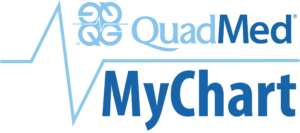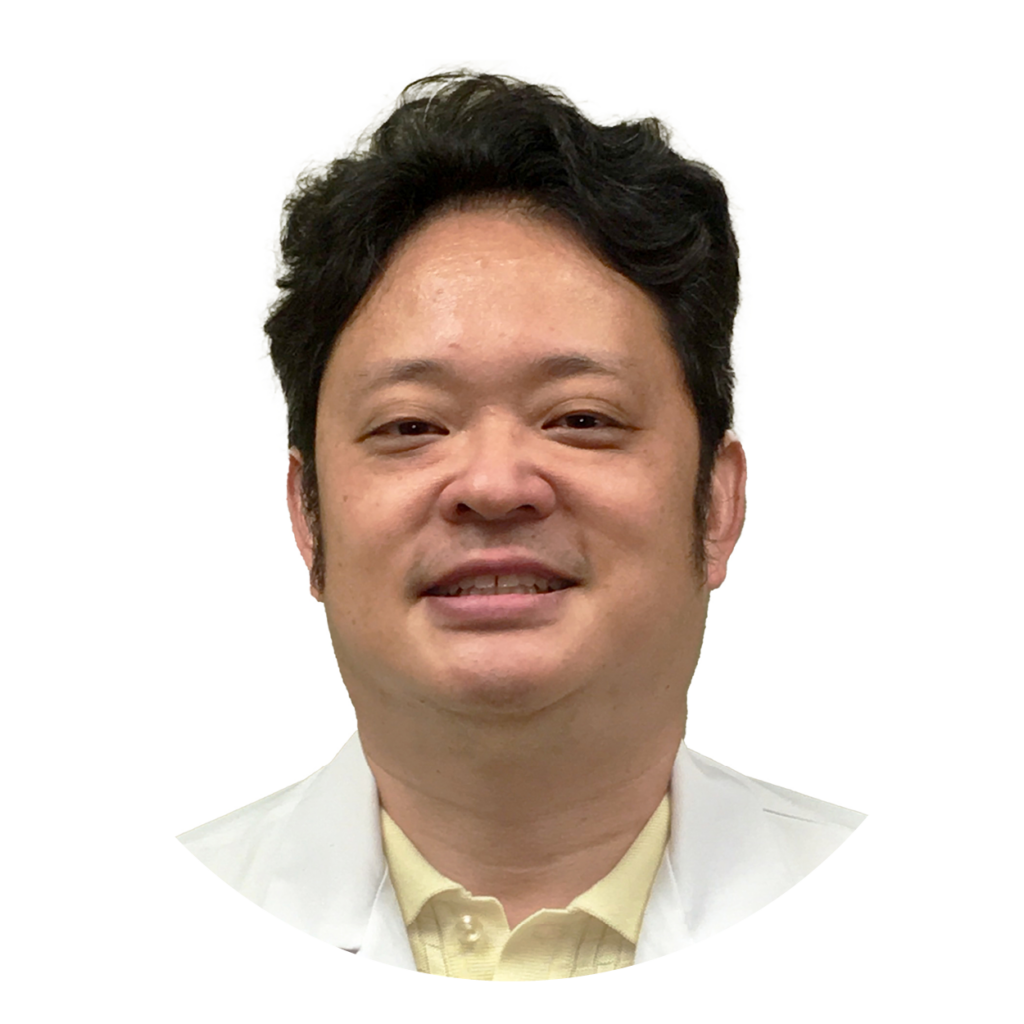Pro tips and education to guide you in troubleshooting and maintaining peak physical, mental and sexual health.
Click the sections below to jump ahead.
MEET THE EXPERTS

QuadMed Physician Assistant

QuadMed Licensed Therapist

QuadMed Physical Therapist
Most men will do anything to avoid seeing a doctor.
We’ve set out to change that.
At QuadMed, we focus on removing barriers to make health care more accessible and more affordable.
The health center is located near the workplace to provide easier access to visits.
We can help with weight management, anxiety, erectile dysfunction and more.
All visits are free
Your medical information is confidential and is never shared with your employer.
MEN’S HEALTH PRO TIPS:
PHYSICAL HEALTH
Hear from QuadMed Physician Assistant Chris Gantt, on the importance of your physical health.

QuadMed Physician Assistant
When you think about physical health, you might think about shedding extra pounds, adding muscle, or simply staying active.
Physical health can mean something different to everyone, but there are general tips that every man can apply to improve physical health – regardless of age.
EVERY MAN. EVERY YEAR.
No matter your age, there are things you should be doing to ensure you’re at your healthiest and catching problems at their earliest. Click your age to see recommended screenings.
Overdue? We provide most screenings at the health center and can connect you with a specialist for anything else.
Annual physicals may not be at the top of your to-do list, but if you’re experiencing any of these warning signs, it’s important you don’t ignore them.
And remember, we’re here to help.

MEN’S HEALTH PRO TIPS:
MENTAL HEALTH
Hear from QuadMed Licensed Therapist Mark Jensen, on the importance of your mental health.

QuadMed Licensed Therapist
We all know that eating healthy and exercising is good for physical health. But what can you do to sharpen your mental health?
There are some suggestions you can try on your own, but the health center can also serve as a good first stop for treatment and support.

When it’s time to reach out.
If you’re experiencing any of the following symptoms, consider scheduling an appointment at the health center to discuss if further treatment may be needed.
Don’t feel comfortable coming in? We totally understand. That’s why we offer virtual visits to give you the care you need where you’re most comfortable.
MEN’S HEALTH PRO TIPS:
SEXUAL & PELVIC HEALTH
Hear from QuadMed Physical Therapist Chuck Schwiesow, on the importance of your sexual and pelvic health.

QuadMed Physical Therapist
Sexual health is important whether you’re trying to prevent sexually transmitted infections or you’re worried about erectile dysfunction or another concern.
What you may not know is that many issues related to sexual health are related to the pelvic floor, a group of muscles that support the bottom of the pelvis and the organs inside the pelvis.
The pelvic floor plays a vital role in everyday functions, such as controlling your bowel and bladder continence and sexual function.

Some of the most common sexual health issues men encounter include:
Erectile Dysfunction
Erectile dysfunction, or ED, affects as many as 30 million men, and it’s the most common sexual health problem that men report to their health care provider. And it can be treated through both medication and lifestyle changes.
Physical causes
Emotional causes
Treatment for ED depends on the cause. It may include certain prescription medications, but lifestyle changes and other natural treatments can also help.
Lifestyle changes
For many people, a physical exam and medical history are all that are needed to diagnose erectile dysfunction and recommend a treatment. If you have chronic health conditions or your health care provider suspects that an underlying condition might be involved, you might need further tests.
Premature Ejaculation
Premature ejaculation is a common and treatable condition. Medications, counseling and sexual techniques that delay ejaculation — or a combination of these — can help improve sex for you and your partner.
Physical, chemical and emotional/psychological factors can cause premature ejaculation.
Physical and chemical problems include:
Emotional or psychological causes include:
Medical, behavioral and psychological therapy are the main treatments for premature ejaculation. Talk with your health care provider to decide the best choice for you.
Medical therapy
Behavioral therapy
Psychological therapy
Urinary Incontinence
Almost 1/3 of men have problems with urinary incontinence. And yet most don’t get medical help. The good news is that with the proper support, urinary incontinence problems can be cured or well controlled.
There are several health and lifestyle issues that can cause loss of bladder control, including:
You may feel uncomfortable discussing incontinence with a health care provider. But if incontinence is frequent or is affecting your quality of life, it’s important to seek medical advice.
There are a few things you can try on your own:
We get it. Talking about sexual health problems isn’t exactly easy.
That’s why we offer virtual visits for a variety of health concerns.
If you don’t feel comfortable coming in, we can connect you with a health care provider by phone or video – however you’re most comfortable.

MEN’S HEALTH PRO TIPS:
Hear from the QuadMed experts on all things men’s health.
PHYSICAL HEALTH
THE EXPERT:

QuadMed Physician Assistant
MENTAL HEALTH
THE EXPERT:

QuadMed Licensed Therapist
SEXUAL HEALTH
THE EXPERT:

QuadMed Physical Therapist
Getting the care you need has never been so simple.
Whether physical, mental or sexual, we’re here to improve your health.
STEP 1
Schedule an appointment where you’re most comfortable.
In the health center or from the comfort of home. When you’re ready to talk, we’re here to listen.
STEP 2
You’ll receive confidential care and a plan to move forward.
A personalized treatment plan will be made to guide you in achieving your health goals.
STEP 3
We’ll empower you to be the best version of yourself.
You’ll receive the support you need to reach your full potential — at work and in life.

MyChart allows you to schedule and start a virtual visit with a QuadMed health care provider. It also provides additional features that help you to manage your health completely online.
Click the buttons below to log in or to sign up
if you don’t already have an account.
Download the MyChart app!
Here are the QuadMed Everywhere doctors available in your state!

Carrie Hofstad, PA-C
Virtual Primary Care Provider

Dr. Gerald Maesaka
Virtual Primary Care Provider
Monday through Friday
8 a.m. to 5 p.m.
Established patients can also reach a provider 24/7
for follow-up questions from a previous visit.
There are two ways to schedule.
Looking to learn more or need help getting started?
Call us to schedule a no-cost virtual orientation!
1.800.888.8932

Powered by Anthem, Live Health Online is also available
for any new, after-hour virtual care needs.
Here are the QuadMed Everywhere doctors available in your state!

Dr. Brigg Barsness
Virtual Primary Care Provider

Dr. Gerald Maesaka
Virtual Primary Care Provider
Monday through Friday
8 a.m. to 5 p.m.
Established patients can also reach a provider 24/7
for follow-up questions from a previous visit.
There are two ways to schedule.
Looking to learn more or need help getting started?
Call us to schedule a no-cost virtual orientation!
1.800.888.8932

Powered by Anthem, Live Health Online is also available
for any new, after-hour virtual care needs.
Here are the QuadMed Everywhere doctors available in your state!

Dr. Brigg Barsness
Virtual Primary Care Provider

Carrie Hofstad, PA-C
Virtual Primary Care Provider
Monday through Friday
8 a.m. to 5 p.m.
Established patients can also reach a provider 24/7
for follow-up questions from a previous visit.
There are two ways to schedule.
Looking to learn more or need help getting started?
Call us to schedule a no-cost virtual orientation!
1.800.888.8932

Powered by Anthem, Live Health Online is also available
for any new, after-hour virtual care needs.
Here are the QuadMed Everywhere doctors available in your state!

Dr. Brigg Barsness
Virtual Primary Care Provider

Carrie Hofstad, PA-C
Virtual Primary Care Provider

Dr. Gerald Maesaka
Virtual Primary Care Provider
Monday through Friday
8 a.m. to 5 p.m.
Established patients can also reach a provider 24/7
for follow-up questions from a previous visit.
There are two ways to schedule.
Looking to learn more or need help getting started?
Call us to schedule a no-cost virtual orientation!
1.800.888.8932

Powered by Anthem, Live Health Online is also available
for any new, after-hour virtual care needs.
QuadMed Everywhere is not currently available in your state, but is coming soon!
We’re working to bring QuadMed Everywhere to all 50 states.
Check back soon to see if your state has access.

Good news! QuadMed Everywhere is available in your state!
Monday through Friday
8 a.m. to 5 p.m.
Established patients can also reach a provider 24/7
for follow-up questions from a previous visit.
There are two ways to schedule.
Looking to learn more or need help getting started?
Call us to schedule a no-cost virtual orientation!
1.800.888.8932

QuadMed Everywhere will be available
in your state beginning Friday, March 1!
Scheduling and patient care will open on March 1.
Check back in February to schedule your first appointment!
In the meantime, Live Health Online powered by Anthem provides eligible Quad employees and families with access to 24/7 virtual care services.
QuadMed Everywhere will be available in your state beginning Friday, September 1!
Scheduling and patient care will open on Friday, September 1.
Check back then to schedule your first appointment!
In the meantime, Live Health Online powered by Anthem provides eligible Quad employees and families with access to 24/7 virtual care services.
Good news! There’s a QuadMed licensed therapist in your state!
Call the Emotional Support Connection to schedule an appointment.

Carrie Hofstad, LSC
Licensed Therapist
QuadMed Everywhere is not currently available in your state, but is coming soon!
We’re working to bring QuadMed Everywhere to all 50 states.
Check back soon to see if your state has access.
In the meantime, Live Health Online powered by Anthem provides eligible Quad employees and families with access to 24/7 virtual care services.
Good news! QuadMed Everywhere is available in your state!
Monday through Friday
8 a.m. to 5 p.m.
Established patients can also reach a provider 24/7
for follow-up questions from a previous visit.
There are two ways to schedule.
Looking to learn more or need help getting started?
Call us to schedule a no-cost virtual orientation!
1.800.888.8932

Powered by Anthem, Live Health Online is also available
for any new, after-hour virtual care needs.

